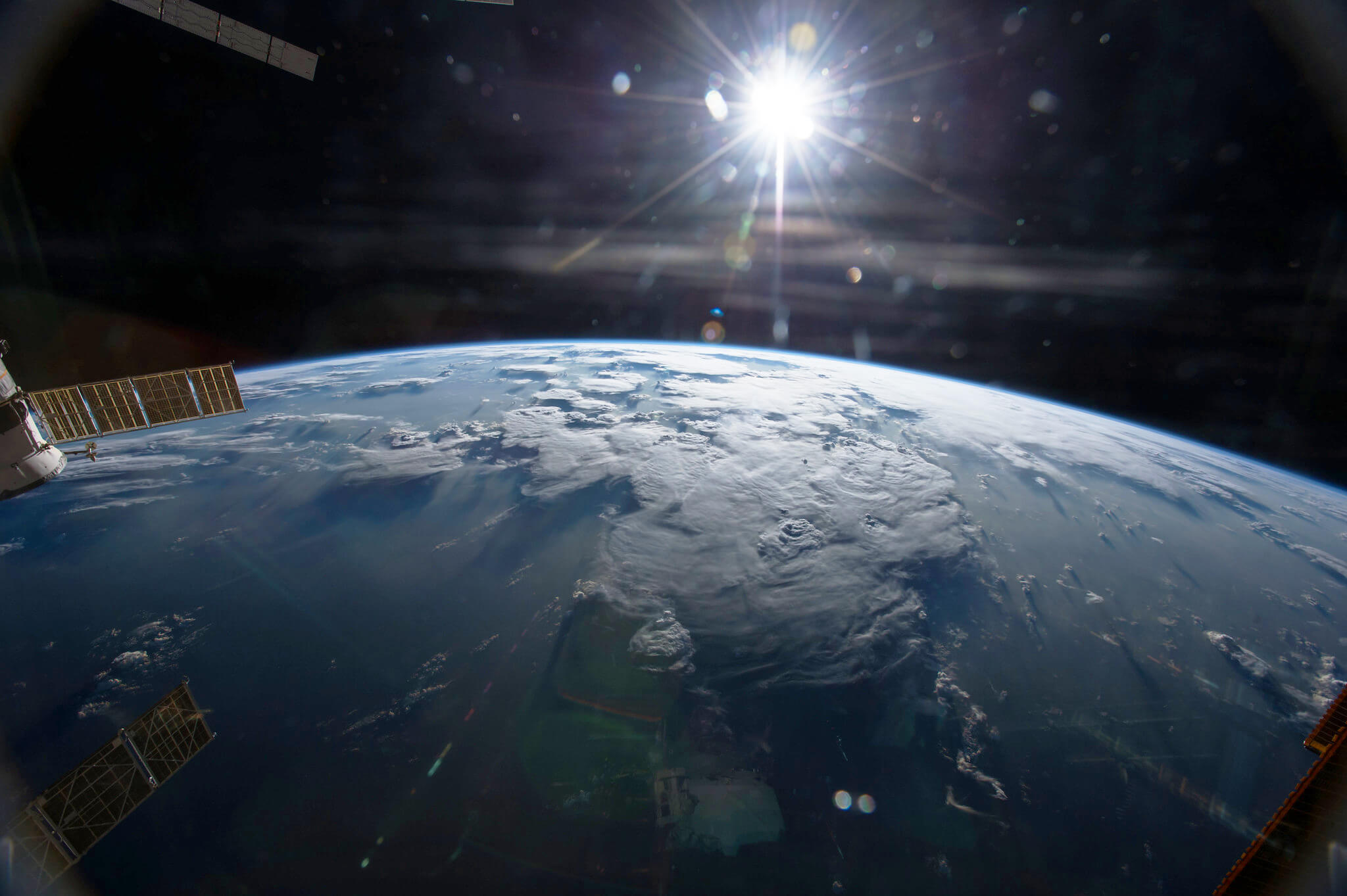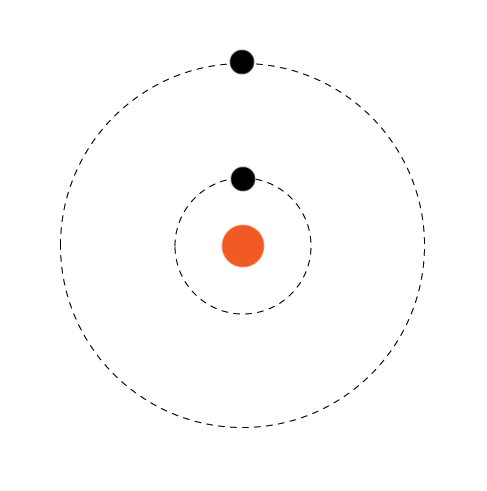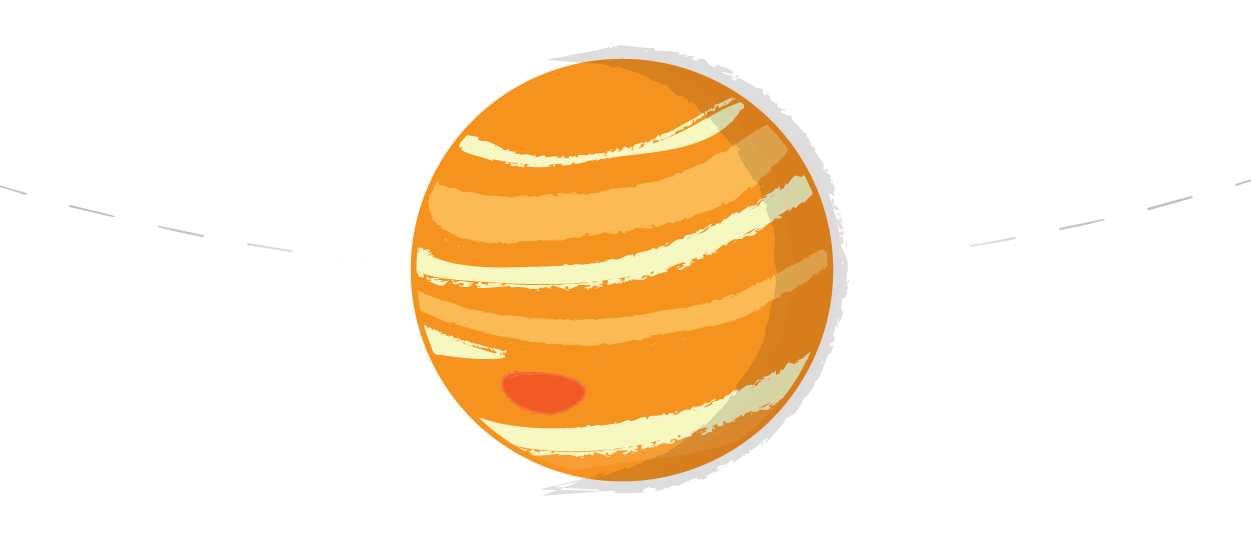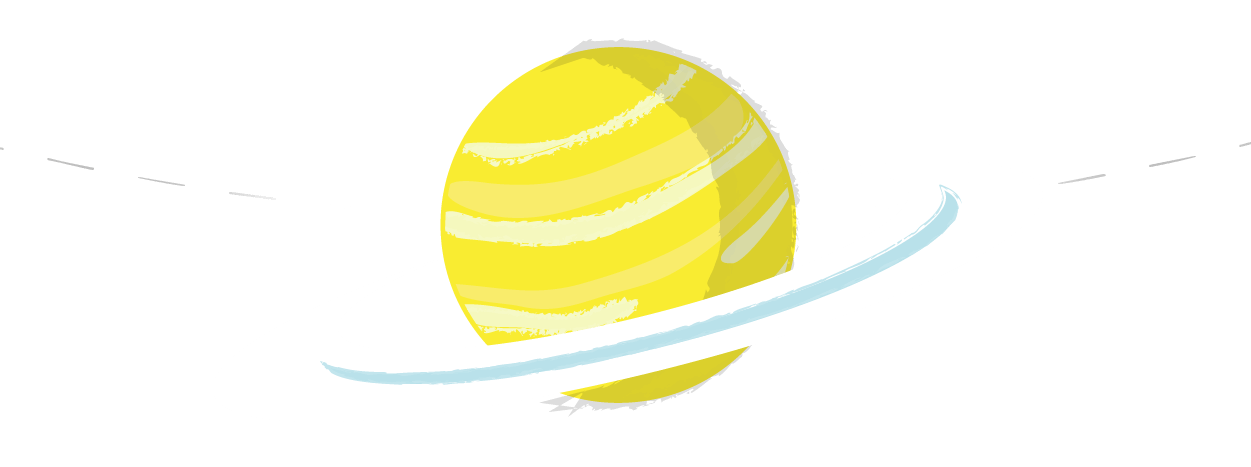
A year on Earth is approximately 365 days. Why is that considered a year? Well, 365 days is about how long it takes for Earth to orbit all the way around the Sun one time.

A year is measured by how long it takes a planet to orbit around its star. Earth orbits around the Sun in approximately 365 days. Credit: NASA/Terry Virts
It’s not exactly this simple though. An Earth year is actually about 365 days, plus approximately 6 hours. Read more about that here.
All of the other planets in our solar system also orbit the Sun. So, how long is a year on those planets? Well, it depends on where they are orbiting!
Planets that orbit closer to the Sun than Earth have shorter years than Earth. Planets that orbit farther from the Sun than Earth have longer years than Earth.

A planet orbiting close to its star has a shorter year than a planet orbiting farther from its star. Credit: NASA/JPL-Caltech
This happens for two main reasons.
- If a planet is close to the Sun, the distance it orbits around the Sun is fairly short. This distance is called an orbital path.
- The closer a planet travels to the Sun, the more the Sun’s gravity can pull on the planet. The stronger the pull of the Sun’s gravity, the faster the planet orbits.
Check out how long a year is on each planet below!

Mercury
Year: 88 Earth Days
Distance from Sun: ~35 million miles
(58 million km)
Venus
Year: 225 Earth Days
Distance from Sun: ~67 million miles
(108 million km)
Earth
Year: 365 Earth Days
Distance from Sun: ~93 million miles
(150 million km)
Mars
Year: 687 Earth Days
Distance from Sun: ~142 million miles
(228 million km)
Jupiter
Year: 4,333 Earth Days
Distance from Sun: ~484 million miles
(778 million km)
Saturn
Year: 10,759 Earth Days
Distance from Sun: ~887 million miles
(1.43 billion km)
Uranus
Year: 30,687 Earth Days
Distance from Sun: ~1.78 billion miles
(2.87 billion km)
Neptune
Year: 60,190 Earth Days
Distance from Sun: ~2.80 billion miles
(4.5 billion km)
Why does NASA care about years on other planets?
NASA needs to know how other planets orbit the Sun because it helps us travel to those planets! For example, if we want a spacecraft to safely travel to another planet, we have to make sure we know where that planet is in its orbit. And we also have to make sure we don’t run into any other orbiting objects — like planets or asteroids — along the way.
Scientists who study Mars also need to keep a Martian calendar to schedule what rovers and landers will be doing and when.
Mars and Earth are always moving. So, if we want to land a robotic explorer on Mars, we have to understand how Earth and Mars orbit the Sun. Watch this video to learn more about the Martian year. Credit: NASA/JPL-Caltech
*Length of year on other planets calculated from data on the NASA Solar System Dynamics website.


















